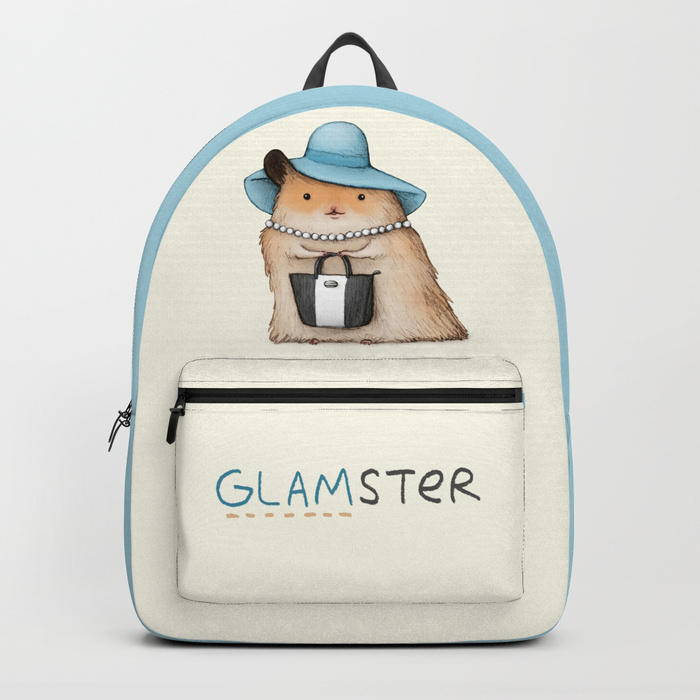
It occurred to me during a recent performance discussion that it’s not always obvious what I spend my time doing, both inside and outside the office. Thankfully my boss wasn’t accusing me of being a slacker (far from it!) but I did realise that maybe I need to talk about some of my library extracurriculars a bit more. There’s the library work I get paid to do, then there’s the library work I do in my spare time, and then there’s the library work I wish I could do but don’t have time for. This is sounding familiar, isn’t it?
A lot of what I do could probably be characterised as ‘hope labour’, a term I recently encountered at the other New Librarians’ Symposium (the one in the States):
“Hope Labour” is premised on the logic of ~invest in yourself and it will pay off~, often aligned with precarious work in libraries. Hope labour takes shape of extra-curricular committee work, continuing education, and pro-bono writing all on your own dime. #newlibsymp19
— Zack Osborne (@zackosborne) May 24, 2019
By doing oodles of extra professional development, one hopes that this labour will demonstrate one’s passion, commitment and skill, and therefore organisations will be more likely to hire people who have done this labour. That’s the idea, anyway. I mean, years of being a notorious twitter personality has opened a lot of doors, but writing this blog has surely helped too. Plus being on committees and doing loads of professional reading, compiling and presenting workshops, doing conference talks… I’m tired just thinking about it.
I did all of those things because I wanted to, not because I felt obliged. Most of me was simply excited to learn things and immerse myself in the library profession, like any enthusiastic new library worker. But I’m sure deep down I also thought all this hope labour would give me a competitive advantage. Ours is not exactly a growth industry, and my little metadata niche is shrinking even as the need for quality metadata is growing. I work with many people who more or less fell into library work, and decades ago you could do that. But not any more. Before I could convince employers to hire me, I would need to first demonstrate that the kinds of jobs I wanted should exist at all.
Last month I was successful in gaining a permanent position at work. (Yay!) The divisional email that went out cited both my achievements at work and my commitment to the profession as some of the reasons why I got the job. Part of me is relieved that my hope labour has paid off, but another part of me resents that it was seemingly necessary (and I wonder if other applicants felt the same way). After all, being able to do all these extracurriculars is a privilege. I have the time, energy, disposable income and absence of other commitments to be able to do all these things. My hard work has been richly rewarded; not everyone’s hard work is recognised in this way. I also put a lot of pressure on myself, which is great for my productivity but probably not so great for the rest of me.
Having said all that: I enjoy the extracurricular stuff I do. I wouldn’t be doing it if I felt otherwise. And I hope that being permanently employed will relieve some of that constant pressure to Be The Best Possible Candidate and enable me to focus my energies on what I find interesting, not just what I think will get me a job.
In no particular order, because it’s hard to explain all this to my boss, and because some of you might find it interesting, here are a few of those things:
VALA Committee: In late June I was elected to the VALA Committee for a two-year term. VALA (previously the Victorian Association for Library Automation) is ‘an independent Australian based not-for-profit organisation that actively supports the use and understanding of information technology in libraries and the GLAM sector’ according to our website. VALA is known mostly for its biennial Conference, which is coming up in February next year. I was heavily involved in VALA Tech Camp earlier this year and decided, after some encouragement, to contribute to the organisation in a more strategic capacity. Though I don’t have an IT background, my job does involve a lot of technical stuff, and I’m slowly coming around to the idea that I can be a technical professional even though I can’t code (but that’s probably a topic for another post). I’m looking forward to bringing my, uh, idiosyncratic perspective on library technology to the Committee.
Cataloging Ethics Committee, Resource Discovery and Accessibility Working Group: Back in April a call went out on several cataloguing listservs (none of which I regularly read, because life’s too short) for people interested in formulating a Code of Ethics for cataloguers, in response to a clear need for ethical guidance in this work. The Steering Committee is a joint project of the American, British and Canadian cataloguing associations (whose full names are too long to include here), but despite not being from any of those countries I was happily accepted into a working group anyway. Along with a dozen or so people from around the world, I’ll be working on ethical guidance for ‘descriptive cataloging and types of materials catalogers deal with regularly as well as data interoperability’. Ethical decision-making comes up regularly in areas like authority control, classification and subject headings (and there are working groups for those too) but ethical descriptive cataloguing is not something I had given a lot of thought to, so excitingly that will change very soon! Our final report to the Steering Committee is due in November, with published guidance sometime next year. Though I joined the group in a personal capacity, I’m hoping this work is something ALIA and/or ACORD will take an interest in.
ALIA Community on Resource Description: Okay, so I’m not actually on this committee (and nor have I written my EOI yet, eek), but I hope to be! And you could be too, because EOIs for ACORD Committee are now open! Replacing the Australian Committee on Cataloguing (ACOC), this new community is open for all to join, and will consist of both a formal Committee and an informal Special Interest Group. I mentioned this group at the end of my NLS9 presentation as ‘a great forum for cataloguers and metadata people to meet, exchange ideas, and work towards better cataloguing for all’. You don’t have to be working as a cataloguer. You don’t even need to be an ALIA member. But you do need to have an interest in metadata. I hope I piqued some of that interest at NLS9—here’s your chance to make things happen.
ACTive ALIA: The committee for Canberra’s local ALIA group (trust me, the name wasn’t my idea) currently consists of me and this bloke, who is also on too many other committees so we get along great. Canberra is a weird place to run an ALIA group because all the individual sectors here seem to want to do their own thing, so it’s harder to bring everyone together for some cross-sector networking. It’s also hard getting people to turn up, though that problem is definitely not unique to us. I’m hoping to help make some cool things happen later this year, but if you’ve got better ideas, feel free to drop us a line.
